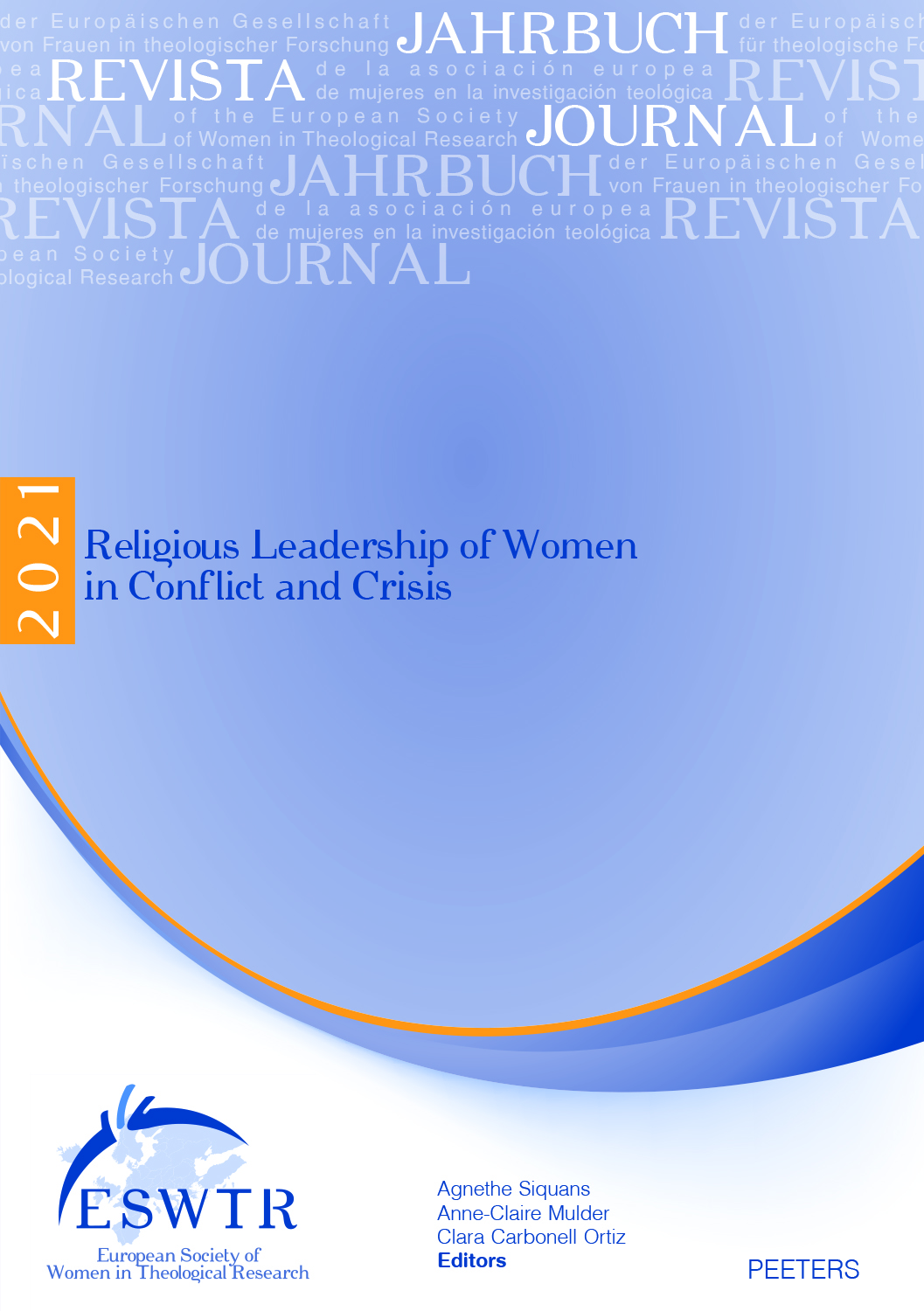 previous article in this issue previous article in this issue | next article in this issue  |

Preview first page |
Document Details : Title: Gender Matters in the Family Subtitle: Confronting Gender Polarity in Philippine Transnational Families of Labour Migrants Author(s): REYES-ESPIRITU, Ma. Adeinev M. Journal: Journal of the European Society of Women in Theological Research Volume: 31 Date: 2023 Pages: 75-95 DOI: 10.2143/ESWTR.31.0.3292280 Abstract : Against the background of persisting gender polarisation in societies all over the world, this paper aims to find an opening to tackle the issue by zooming in on the domestic sphere. The family as a basic unit of society contributes to how people are initially socialised into gender roles. With Philippine transnational families as a case study, I argue that familial gender roles may not be static or fossilised but are nonetheless significant factors that affect how transnational family members interact and live as a family across temporal and spatial distances. In this regard, it can be helpful to mine Christian faith from the perspective of childhood for possibilities to creatively express gender in the family, particularly as mothers and fathers. First, the intention of parenting is brought to the centre, which is the children’s welfare and fullness of life. Second, gender is appreciated as a significant part of a person’s giftedness as a relational being. Gender expression is a developing part of one’s personhood that finds its value in relating to others. Third, as in the experience of children, being disposed to recognise grace in their lives can elicit among parents an attitude of trust and hope amidst the challenges that come with labour migration and transnational parenting. Auf dem Hintergrund einer andauernden Geschlechterpolarisierung an allen Gesellschaften weltweit zielt dieser Beitrag darauf ab, eine Möglichkeit zur Lösung des Problems durch eine Konzentration auf den häuslichen Bereich zu finden. Die Familie als grundlegende Einheit der Gesellschaft trägt dazu bei, wie Menschen zuerst in Geschlechterrollen sozialisiert werden. Anhand der philippinischen transnationalen Familien als Fallstudie argumentiere ich, dass familiäre Geschlechterrollen nicht statisch oder versteinert sind, aber dennoch bedeutende Faktoren sind, die beeinflussen, wie transnationale Familienmitglieder über zeitliche und räumliche Distanzen hinweg interagieren und als Familie leben. In dieser Hinsicht kann es hilfreich sein, den christlichen Glauben aus der Perspektive des Kindseins zu betrachten, um Möglichkeiten für einen kreativen Ausdruck von Geschlecht in der Familie zu finden, insbesondere als Mütter und Väter. Erstens wird die Intention der Elternschaft in den Mittelpunkt gerückt, nämlich das Wohlergehen und die Fülle des Lebens der Kinder. Zweitens wird das Geschlecht als wichtiger Teil der Begabung eines Menschen als Beziehungswesen gewürdigt. Der Ausdruck des Geschlechts ist ein sich entwickelnder Teil der eigenen Persönlichkeit, die ihren Wert in der Beziehung zu anderen findet. Drittens kann, wie in der Erfahrung von Kindern, die Bereitschaft, die Gnade in ihrem Leben zu erkennen, bei den Eltern eine Haltung des Vertrauens und der Hoffnung inmitten der Herausforderungen hervorrufen, die mit Arbeitsmigration und transnationaler Elternschaft einhergehen. En el contexto actual de polarización de género en sociedades de todo el mundo, este artículo pretende encontrar una vía para abordar la cuestión poniendo el foco de atención en la esfera doméstica. En tanto unidad social básica, la familia contribuye a los procesos de socialización de los roles de género. Las familias filipinas transnacionales son un caso de estudio que permite argumentar que, aunque los roles de género no son estáticos ni están fosilizados, sí son un factor significativo que afecta a cómo los miembros de familias transnacionales interactúan y constituyen una familia aun en la distancia temporal y espacial. En este sentido, puede resultar útil explorar la fe cristiana desde la perspectiva de la infancia a fin de identificar posibilidades para expresar creativamente el género en la familia, especialmente como madres y padres. Con este fin, en primer lugar, se pone en el centro el objetivo último de la crianza, esto es, el bienestar y la plenitud de vida de los hijos e hijas. A continuación, el género se presenta como una parte significativa de la persona en tanto esta se recibe como don y ser relacional. En este sentido, la expresión de género es una parte en desarrollo de la propia personalidad que encuentra su valor al relacionarse con otros y otras. Finalmente, como ocurre en la experiencia de los infantes, el estar dispuestos a reconocer la gracia en la propia vida puede favorecer una actitud de confianza y esperanza entre los padres y madres, aun en medio de los desafíos aparejados al trabajo migratorio y la crianza transnacional. Fatal error: Uncaught mysqli_sql_exception: Column 'lib_id' cannot be null in /srv/data/web/vhosts/poj.peeters-leuven.be/htdocs/secure/POJ/tracker2.php:212 Stack trace: #0 /srv/data/web/vhosts/poj.peeters-leuven.be/htdocs/secure/POJ/tracker2.php(212): mysqli_query() #1 /srv/data/web/vhosts/poj.peeters-leuven.be/htdocs/article.php(579): track2_page_hit() #2 /srv/data/web/vhosts/poj.peeters-leuven.be/htdocs/content.php(634): include('...') #3 {main} thrown in /srv/data/web/vhosts/poj.peeters-leuven.be/htdocs/secure/POJ/tracker2.php on line 212 |
